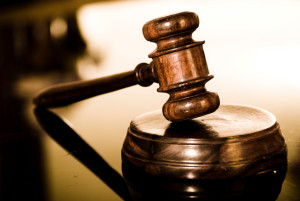Each year in the United States food poisoning affects 1 in 6 people, an alarming 48 million, culminating in an estimated 128,000 hospitalizations and 3,000 deaths. Often it is society’s most vulnerable, the young, elderly, and otherwise immunocompromised that are most severely sickened or killed.
What are the exact steps you can take to protect your rights if you’ve been sickened by food?
- If you are experiencing symptoms of food poisoning, such as severe cramping, nausea, vomiting, bloody diarrhea, and/or fever GET MEDICAL TREATMENT. It is important to note most foodborne pathogens do not cause symptoms immediately. Often there is a delay between ingesting the tainted food and onset of symptoms, this is called the incubation period and it varies with each pathogen.
- Ask your doctor for further testing to determine the actual foodborne pathogen that made you sick. Campylobacter, coli, hepatitis A, Listeria, norovirus, Salmonella, Shigella and Vibrio are the most common foodborne pathogens.
- If your test is positive ask your doctor to make sure your positive test isolate (i.e. stool, blood or spinal fluid) is sent to your state’s health department. The health department has sophisticated tools to determine if your strain of bacteria is part of a larger outbreak.
- You should also contact your state’s health department and tell them you tested positive for a foodborne illness and would like your case investigated.
- If you are still in possession of the food product that you think made you sick you should ask the health department how to best preserve and/or test it.
- Collect proof of purchase, any receipts, credit card statements, or other documentation that shows you purchased/consumed the food in question.
- Clean and sanitize any utensil or surface area that may have come in contact with the contaminated item, including food preparation areas, sinks, refrigerators, and freezers.
- Be aware of long-term complications from foodborne illness. For example, some pathogens, including Salmonella, are known to cause reactive arthritis. If you have joint pains weeks following food poisoning, make sure you see a doctor.
Who should be held accountable?
Everyone has the right to eat safe food, free from dangerous bacteria that can severely sicken or kill. Federal institutions such as the Centers for Disease Control (CDC), U.S. Department of Agriculture (USDA), and Food and Drug Administration (FDA) work with state agencies to ensure food manufacturers and distributors are meeting the food safety standards determined by the law. Restaurants and grocery stores are also required by law to provide safe food. If the law and evidence support your personal injury claim you can sue a restaurant for food poisoning. Additionally, there may also be other businesses you can sue, including a grower, food processor and distributor.
If there is evidence that a company failed to meet safety standards such as citations from the local health department for unsanitary conditions, or failure to comply with regulations to send sick employees home you may be entitled to punitive damages. Punitive damages are amounts of money awarded to a food poisoning victim that are given to punish the wrongdoer. These amounts are given in addition to amounts for medical expenses, lost income, pain and suffering, emotional distress and other “compensatory damages.” An experienced lawyer can help determine if your case merits punitive damages.
Pritzker Hageman is a national food safety law firm; our attorneys have represented people in virtually every national foodborne illness outbreak involving pathogenic microorganisms and natural toxins.
Fred and the lawyers in his firm have obtained more than 50 million and multi-million-dollar recoveries on behalf of their clients. For a free consultation call toll-free 1-888-377-8900.
Read about our Food Safety Scholarship.
